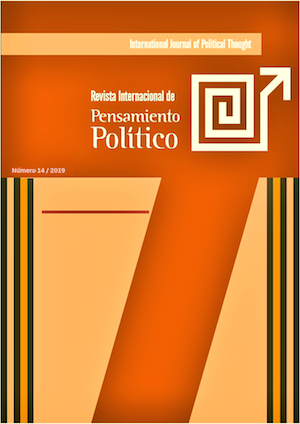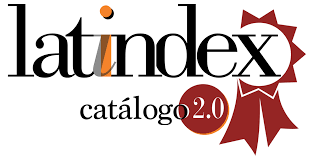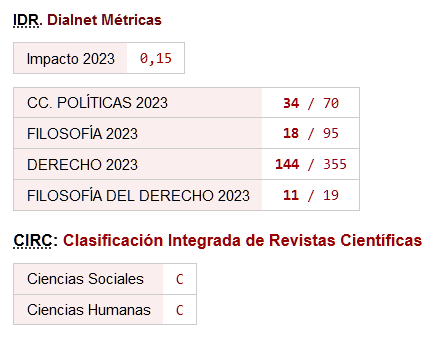Political participation as resistence: the case of the Human Rights Agency in Montes María, Colombia
DOI:
https://doi.org/10.46661/revintpensampolit.4765Keywords:
Citizenship, Participation, Human rights, Victims, Armed conflictAbstract
Participation means for the victims of the armed conflict in Colombiaa commitment to the creative agency for the reparation of the rights violated by the conflict. This paper presents the results of the accompaniment to victims of the conflict in the construction and follow-up of the Comprehensive Collective Reparation Plans. It was found that participation in the spaces created by the State makes it possible for victims
to participate in the planning of public policies, however, the disarticulation and the institutional fiscal control prevent the fulfillment of the agreed commitments, which constitutes for the victims in a conjuncture of political struggle and community
empowerment.
Downloads
References
Aguilera, M. (2002). “Palma africana en la Costa Caribe: Un semillero de empresas solidarias”. Documentos de trabajo sobre
economía regional. Banco de República. No. 30. Cartagena de Indias.
Aldret, A. D. (2017) ‘Participación ciudadana en la gestión y en las políticas públicas’, Gestión y Política Pública, pp. 341–379.
Daniels, A (2016). “La transformación de la estructura productiva de los Montes de María: de despensa agrícola a distrito
minero-energético”. Revista Memorias. No.12. 2016.
Herrera, J. (2008) La reinvención de los Derechos Humanos. Sevilla: Atrapasueños.
Hueso, A., Boni, A. y Belda-Miquel, S. (2015) ‘Perspectivas y políticas sobre la juventud en desventaja en España: un
análisis desde el enfoque de capacidades / Perspectives and Policies on Disadvantaged Youth in Spain: An Analysis Using
the Capability Approach’, Revista Española de Investigaciones Sociológicas, pp. 47–64. doi: 10.5477/cis/reis.152.47
Muñoz, M. (2014) ‘El enfoque de capacidad de Amartya Sen y sus limitaciones para la ciudadanía y la sociedad civil’, Araucaria. Revista Iberoamericana de Filosofía, Política y Humanidades, 31(16), pp. 85–103.
Nieto, J. (2014) “La participación como resistencia en el contexto del conflicto armado colombiano”. FORUM, Revista del Departamento de Ciencia Política, 5, pp. 139–159.
Nussbaum, M. (2012) ‘Las capacidades centrales’, en Paidós (ed.) Crear capacidades, propuesta para el desarrollo humano. Barcelona: Espasa Libros, pp. 38–65.
Nussbaum, M. (2001). Women and human development: The capabilities approach (Vol. 3). Cambridge: Cambridge University Press.
Parés, M. (2009) ‘Introducción: Participación y evaluación de la participación’, en Participación y calidad democrática: Evaluando las nuevas formas de democracia participativa. Barcelona: Ariel, pp. 15–26.
Rodríguez, C. y Rodríguez, D. (2010) Cortes y cambio social. Cómo la Corte Constitucional transformó el despazamiento forzado en Colombia. Bogotá: Centro de Estudios de Derecho, Justicia y Sociedad.
Sen, A. (1999a) ‘Democracy as a Universal Value’, Journal of Democracy, 10 (3), pp. 3–17.
Subirats, J. (2005) ‘Democracia, participación y transformacion social’, Polis, Revista Latinoamericana, 12, pp. 1–10.
Vargas, J. (2014) ‘Análisis comparativo de los diseños institucionales que regulan la participación de las víctimas en Colombia: antes y después de la Ley 1448 de 2012’, Estudios Socio-Jurídicos, 16 (1), pp. 167–207. doi: 10.12804/ esj16.1.2014.04.
Victorino, R. (2011). Transformaciones territoriales a partir del abandono y despojo de tierras asociado a la acción de grupos armados. El caso de Marialabaja departamento de Bolívar. (Tesis de maestría). Pontificia Universidad Javeriana.
Bogotá. Villa, J. D. y Insuasty, A. (2016) ‘Entre la Participación y la Resistencia: Reconstrucción del Tejido Social desde Abajo en el Municipio de San Carlos más allá de la Lógica de Reparación Estatal’, Agora U.S.B., 16 (2), p. 453. doi: 10.21500/16578031.2442
Downloads
Published
How to Cite
Issue
Section
License
Copyright (c) 2020 Creative Commons 4.0 Internacional

This work is licensed under a Creative Commons Attribution-NonCommercial-ShareAlike 4.0 International License.
Open access policy
Free and open access is allowed to any interested party to all the contents of the journal issues, free of charge, being able to print and transfer all the articles, with the only condition of specifying the source and authorship.
The journal: a) does not charge authorship costs for the processing of articles or for their submission, b) maintains copyright for authors without restrictions, c) facilitates authors to keep their publication rights without limitations.
The International Journal of Political Thought is an original work of the Laboratory of Political Ideas and Practices of the Pablo de Olavide University. All articles included in the Journal are original work of their respective authors. This Journal is freely offered to the scientific and academic community at no cost and releases the contents according to the license "Attribution-NonCommercial-ShareAlike 4.0 CC BY-NC-SA" of the Creative Commons project available in the following url: https://creativecommons.org/licenses/by-nc-sa/4.0/legalcode
If you wish to translate or compile any of the articles available here, please contact us at contacto












 ISSN: 1885-589X
ISSN: 1885-589X  Universidad Pablo de Olavide
Universidad Pablo de Olavide